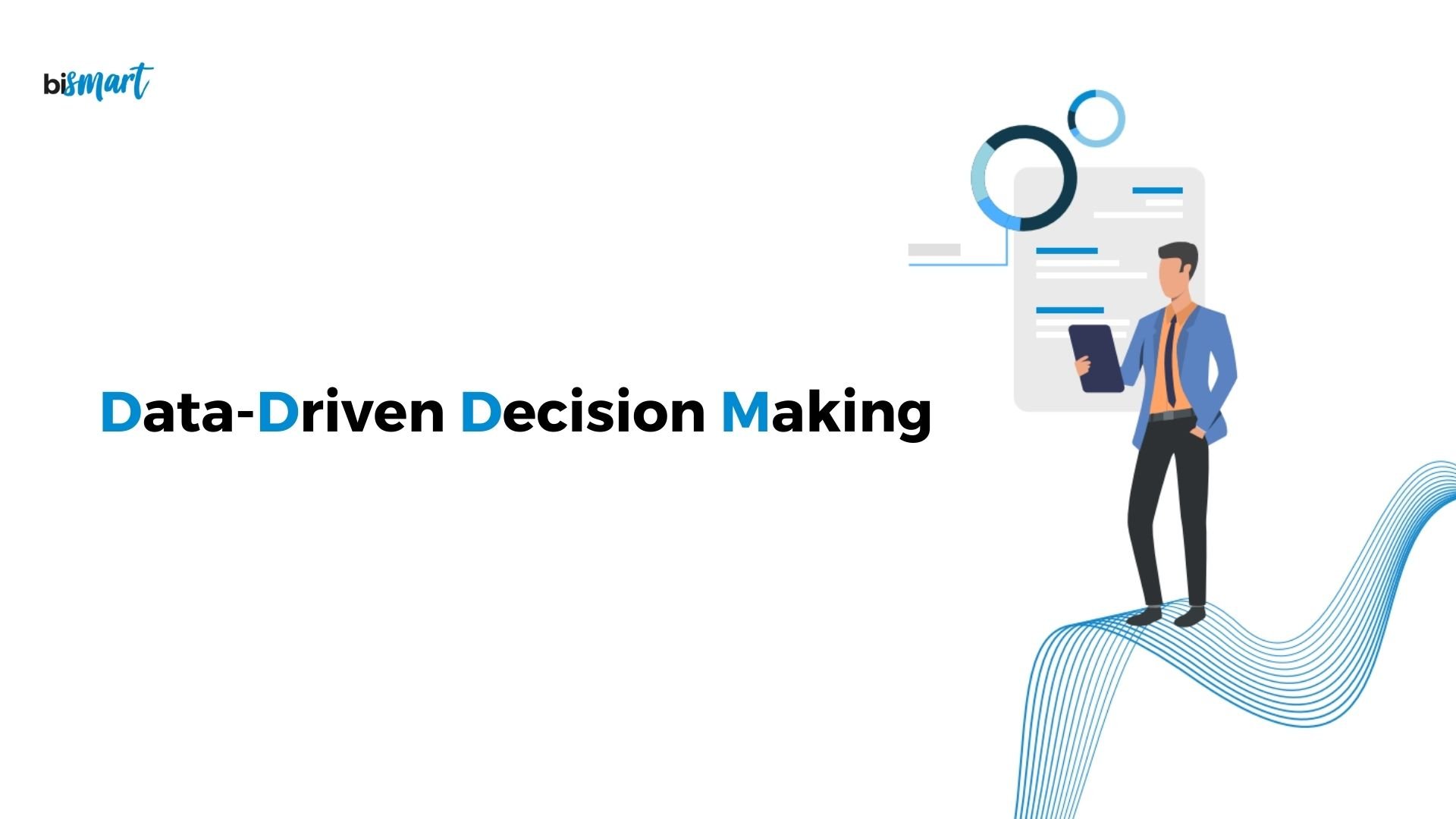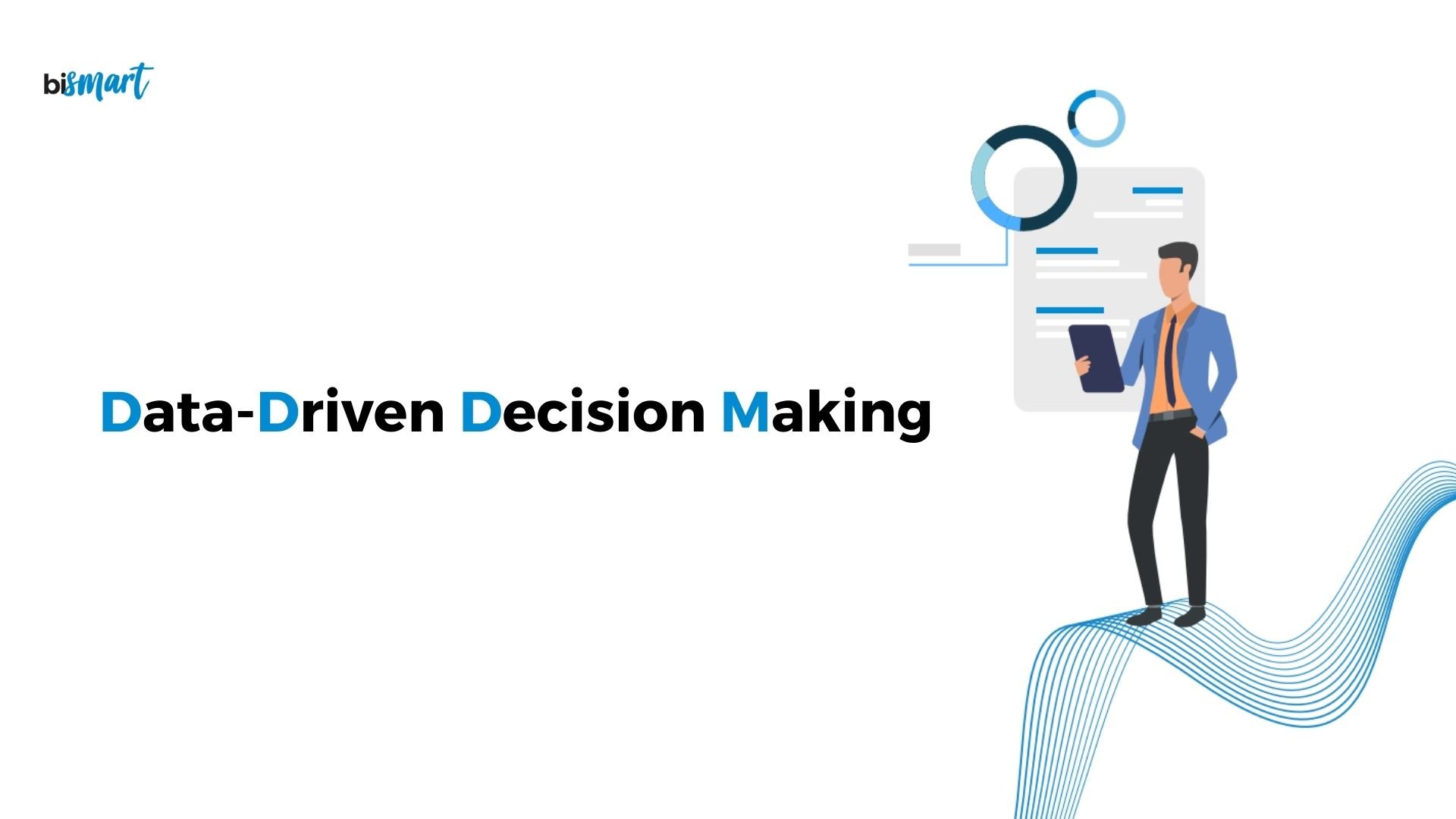Data-driven decisions are the key to ensuring good business performance in the medium and long term. Learn why and how to make data driven decisions.
If you are in charge of a company or work in the business world, it is very likely that you have heard the term "data driven decisions", but what are data driven decisions and why is it beneficial to base our decisions on data?
Join us on a journey to make better business decisions based on data.

"New information makes new ideas possible" Zig Ziglar, writer.
If you work or have worked in a business environment, you are probably familiar with the term 'data-driven decisions', as it is increasingly used in the business world. The popularity of the term is linked to a cultural shift in the way CEOs and senior business leaders make decisions. Business leaders do not make decisions based on instincts, beliefs or intuition, but now take advantage of the value of their data.
- The term "data driven decisions" was first coined by Piyanka Jain, founder of Aryng (a management consultancy focused on data analytics) and author of the bestseller "Behind Every Good Decision".
What are data driven decisions (DDD)?
Data-driven decisions (DDD) are business decisions based on data analysis. Making data-driven decisions involves a whole process that includes the collection and processing of data based on measurable objectives or KPIs, the analysis and treatment of the data to obtain insights and their subsequent transformation into visual and understandable information. This entire process must respond to specific business objectives and each step of the process —the collection, integration, management, analysis and processing of data— must be carried out in relation to the previously defined objectives.
- Do you want to learn how to make data-driven decisions or optimize your data-driven decision making method? Download our 8 tips to make data-driven decisions:
The New York building that almost fell
The importance of data driven deicions

Technicalities aside, data-driven decisions are part of a philosophy and a way of understanding the mental process we go through when we have to make a decision.
Let's look at the famous case of William LeMessurier, the owner of one of the most important and celebrated construction and architectural firms of the 1960s and 1970s. His big break came in the early 1970s when he was asked to build the Citigroup Building corporate headquarters in New York, which is today one of the most iconic buildings in the world. The inauguration of the skyscraper, 279 meters high and with its clean but unusual forms, was a great success and has become one of the iconic shapes of the New York skyline. In 1977, when construction was completed, LeMessurier had reached the pinnacle of his professional career, but a year later he had to make one of the most complicated decisions of his life that we can all learn from. It all started with an unexpected call from one of his engineering students who was writing a paper on the building. The student, who had studied every detail of the skyscraper, informed him that the measurements were wrong, that the support columns were displaced and that the building was in danger of falling. LeMessurier, who had gone over the design numerous times and had also been reviewed by others, could easily have ignored the student's warnings, but he did not. He decided to check the metrics and realized that, indeed, the boy was right. Bravely, LeMessurier ordered the building to be rebuilt, acknowledging his mistake to an already cheering world.
Beyond a lesson in professionalism and humility, LeMessurier's decision shows us that, when it comes to making decisions, going by our impressions, beliefs and desires is not the best approach.
Just like LeMessurier, in order to make business decisions, we must put instinct aside and base our decisions on logic and conscious reasoning. In short, on empirical data. Although it may be difficult, in business it is better to take our knowledge and experience as hypotheses that must be validated through data. Nor is it advisable to rely on the experience of others, since what works for others may not work for us and vice versa. An example of this is the company Privalia, which, before the boom of social media sales, when all large companies predicted that it was impossible to sell on Facebook, decided to try it, setting a precedent for most corporations today.
Why should you make data-driven decisions? The Data-Driven Decision Making Method (DDDM)
This is precisely what the Data-Driven Decision Making (DDDM) method is all about: abandoning any bias and making decisions based on useful knowledge. In this sense, when we collect data with the intention of supporting business decision making, it is essential that the data is closely linked to the business strategies we want to develop, thinking about a specific business area and context. Therefore, it is not a matter of collecting all the data we have and analyzing it, but rather, it is essential to prioritize the data we need for each objective and strategy and to analyze those metrics or factors that will give us exactly the information we need to make an accurate decision. If we do not carry out a conscious data analysis that allows us to extract insights and knowledge that have real value for the company, decision making will not be effective.
On the other hand, the data must be of high quality (data quality). After all, the quality of our decisions depends on the quality of our data.
The Data-Driven Decisions Making (DDDM) method is nowadays the key to ensuring the smooth running of a company. This decision-making process results in informed decisions, and what entrepreneur would want to make uninformed decisions? You wouldn't, would you?
Moreover, like any innovation process, this method arises from necessity and context. In a world dominated by the abundance of information, and in which there is already talk that "data is the new currency", to think that a company can function without using it would be, quite simply, totally crazy. The market is now more unpredictable than ever and the digital world is in a constant state of flux. For companies to adapt to this volatile environment, they must make informed business decisions backed by validated and consolidated data. Data-driven decisions not only promise better results in the short term, but also represent a decisive element for businesses to ensure their continuity over time.
Let the data speak
There are many studies that support the improvement in results when companies start making decisions based on data. Research conducted by the MIT Center for Digital Business concluded that companies that make decisions based on the DDDM method achieve 4% higher productivity and 6% higher profits than those that do not. Reaching conclusions based on quality data and insights encourages better decision making and, consequently, is more profitable.
Other business benefits of making data driven decisions
If you are still skeptical and do not believe that making data-driven decisions can increase your revenue or improve your business performance, the truth is that the DDDM method has, in itself, a positive impact for any organization beyond financial results. The multidimensional process that results in data-driven decision making involves carrying out a series of practices that are beneficial. For example, opting for this methodology will lead you to better manage your data, to ensure that all your data has been validated and consolidated, to review the security of your data and that of your clients and, in short, to consolidate your data governance measures. In addition, the process of in-depth analysis and transformation of data into insights can mean a boost to obtain unknown information, to know more and better your customers and to bet on innovative and more effective business intelligence, commercial and marketing strategies.
In short, any process that involves obtaining greater knowledge about our company, the situation of the business activity, about customers and about the market and the competition, will be convenient and positive.
Making data-driven decisions enables companies:
- Generate knowledge
- Discover business opportunities
- Identify pain points
- Predict future trends
- Optimize resources and team efforts
- Create new business strategies
- Generate more revenue
More than a method, it is a culture
As data processing has become a fundamental step in more and more methodologies, data has made its way into all departments of companies. It is no longer only data analysts who work with data, but it must nowadays be a business asset present in all departments and business units.
In this sense, having data and experts who can analyze it is no longer enough. Today, it is necessary for companies to promote knowledge of data so that it becomes part of the working culture of the entire organization, establishing a general culture of data exploitation; a data-driven culture.
A data-driven culture goes far beyond the use of data and implies the development of critical thinking, the thirst for information and the understanding that any decision is made on the basis of consolidated data.
How to make data driven decisions?
Start making better data-driven decisions with our guide "The 8 keys to making data-driven decisions" - leverage the value of your data!



